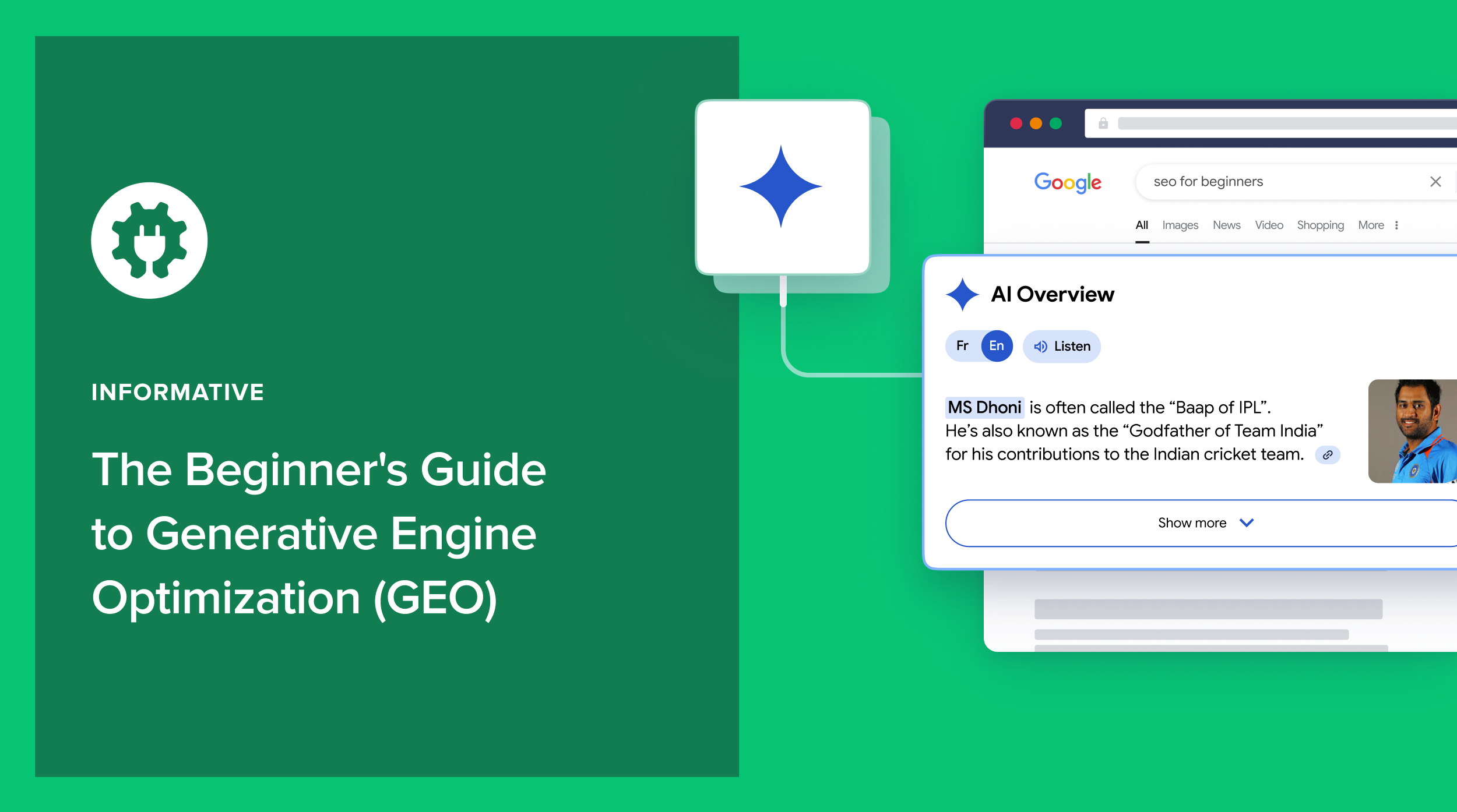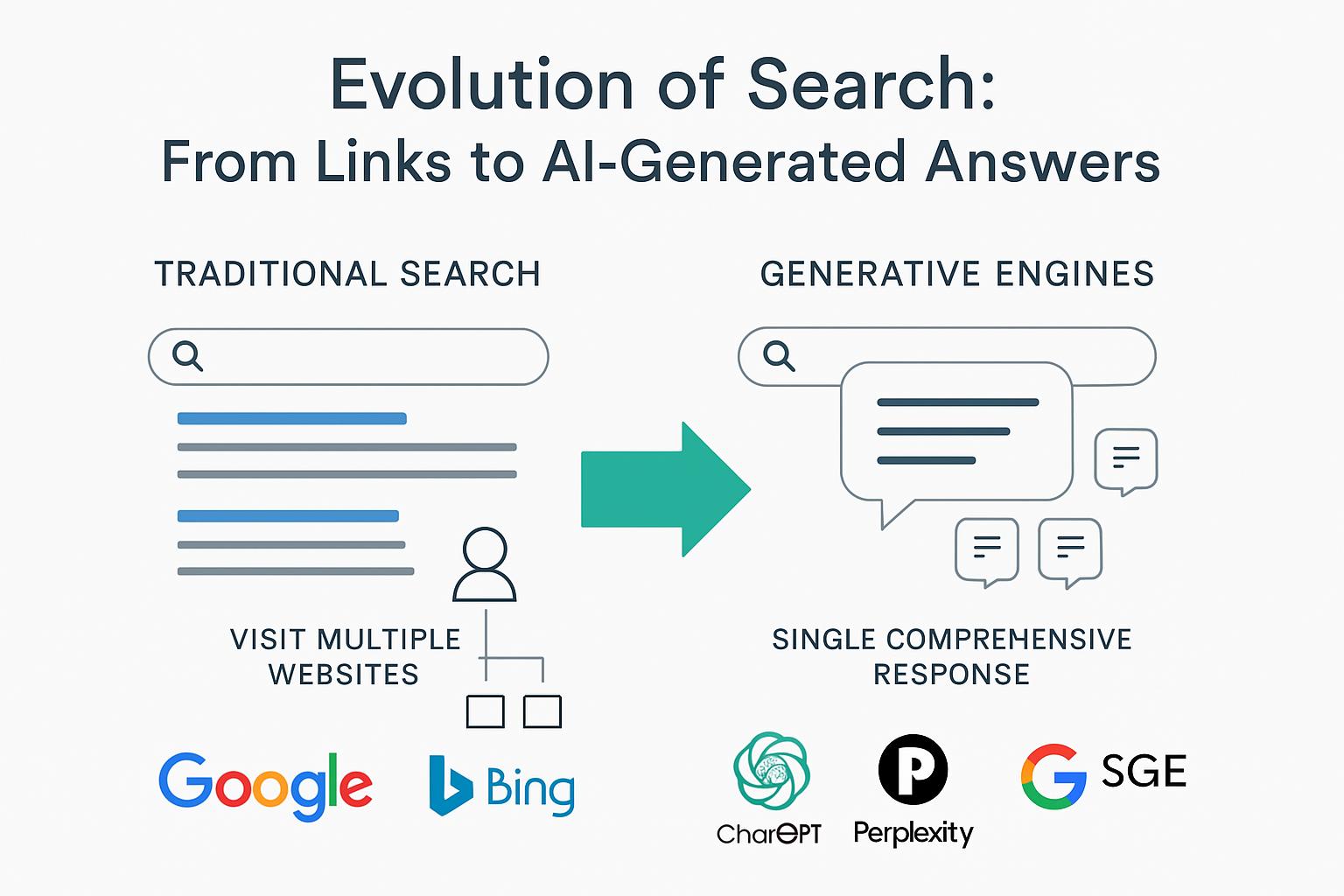Introduction to Generative Engine Optimization (GEO)

Welcome to the comprehensive tutorial on Generative Engine Optimization (GEO), a revolutionary paradigm that is reshaping how content creators approach visibility in the age of AI-powered search engines.
What You'll Learn
In this tutorial, you will discover:
- The fundamental concepts behind generative engines and their impact on information discovery
- Why traditional SEO methods fall short in the generative engine era
- How to optimize your content for maximum visibility in AI-powered search responses
- Practical strategies and metrics for measuring success in generative engines
- Real-world applications and case studies
Watch: Introduction to GEO
Learn the basics of GEO and why it's essential for modern content creators
The New Era of Search

The landscape of information discovery is undergoing a dramatic transformation. Traditional search engines that simply return lists of websites are being rapidly replaced by sophisticated generative engines that synthesize information from multiple sources to provide comprehensive, personalized responses directly to users.
This shift represents both an opportunity and a challenge for content creators, website owners, and digital marketers who must now navigate an entirely new paradigm for achieving visibility and engagement.
Key Statistics
Based on academic research and real-world testing:
- 40% visibility increase possible with proper GEO implementation
- 10,000+ queries analyzed across multiple domains
- Multiple generative engines tested including ChatGPT, Perplexity, and Google SGE
Tutorial Structure
This comprehensive guide is organized into seven main sections:
- Understanding Generative Engines - Architecture and workflow
- GEO Concepts - Why traditional SEO isn't enough
- Visibility Metrics - How to measure success
- GEO-bench - Research benchmark and evaluation
- Practical Strategies - Actionable optimization techniques
- Conclusion - Future directions and key takeaways
Let's begin this journey into the future of content optimization.